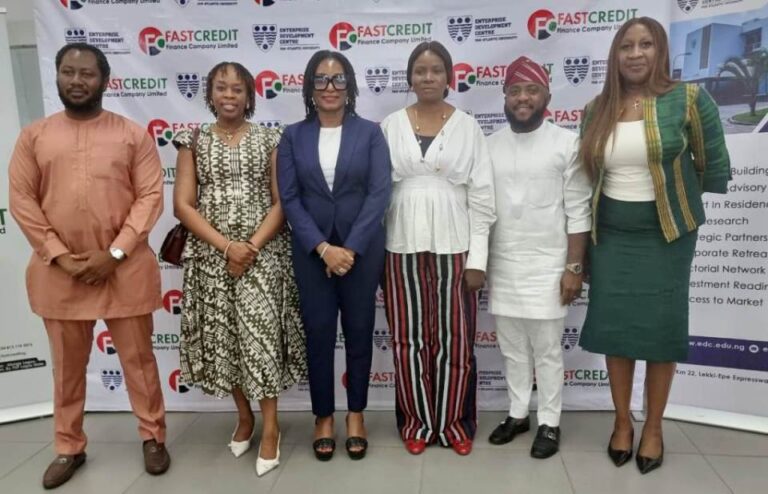A new wave of support has emerged for Nigeria’s Micro, Small, and Medium Enterprises as Fast Credit Finance Company Limited, in collaboration with the Enterprise Development Centre (EDC) of Lagos Business School, launches a ₦2 billion single-digit lending programme aimed at boosting small-business expansion and productivity.
With an estimated 39 million MSMEs responsible for over 80 percent of national employment, access to affordable credit remains one of the sector’s most persistent obstacles. Many entrepreneurs struggle under commercial loan rates that often exceed 22–30%, constraining growth and discouraging long-term investment. The new Fast Credit–EDC facility seeks to provide a practical alternative that reduces financing pressure and supports broader economic advancement.
During the announcement in Lagos, Acting Managing Director of Fast Credit, Yetunde Faulkner, confirmed that the organisation will deploy ₦2 billion in SME loans at an annual interest rate of 9%.
“Our partnership with EDC and the Bank of Industry enables us to deliver accessible financing from ₦5 million upward at 0.75% monthly, giving entrepreneurs room to expand operations and reinforce profitability,” she stated.
The initiative is structured to help businesses scale production, hire more workers, and maintain competitiveness even amid rising operational costs and macroeconomic challenges.
Dr. Nneka Okekearu, Director of the EDC at Pan-Atlantic University, described the collaboration as a milestone in addressing Nigeria’s long-standing SME funding gap.
“Entrepreneurs have grappled with high double-digit loans for years. Introducing single-digit financing can truly transform the trajectory of small and mid-sized enterprises,” she said.
Okekearu highlighted the potential impact on manufacturers who need capital to improve output and expand production lines. Under the new scheme, business owners with at least ₦2 million in operating capacity can access up to ₦10 million for growth.
Fast Credit’s Executive Director, Daniel Aviomoh, noted that loan assessment prioritises business viability, profitability, and the integrity of the entrepreneur, with collateral as a secondary factor. He encouraged SMEs to maintain proper corporate structures—including registering as limited liability companies—to strengthen their eligibility.
To apply, businesses must provide a 12-month bank statement, BVN, NIN, TIN, company profile, valid identification, verifiable credit history, guarantor information, and a vendor invoice.
Stakeholders at the launch welcomed the initiative. Business consultant Feyikemi Odunuga emphasised that the loan programme will ease access to capital for manufacturers, while EDC alumna Kachi Salvation described the single-digit rate as a significant relief for small businesses facing escalating costs.
The programme was introduced during the Fast Credit–EDC SME Breakfast Meeting themed “Reimagining Business Models for Inclusive Growth in Africa,” which brought together entrepreneurs and ecosystem leaders to discuss pathways for sustainable enterprise development.
In an economy affected by inflation and rising operational expenses, the Fast Credit–EDC financing partnership is expected to strengthen SME growth, stimulate job creation, and deepen the sector’s contribution to Nigeria’s GDP—reinforcing MSMEs as a critical engine of national development.

